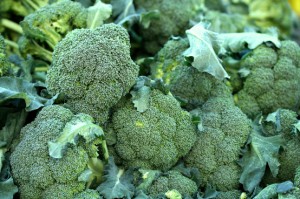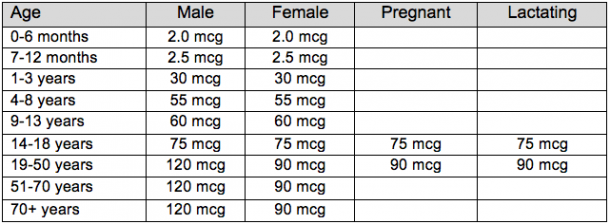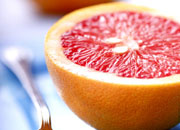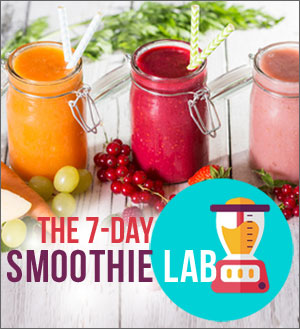 Most people associate vitamin K with blood clotting, since the vitamin plays an essential role in several reactions that control blood clotting.
Most people associate vitamin K with blood clotting, since the vitamin plays an essential role in several reactions that control blood clotting.
New research suggests a role for vitamin K in bone health. Certain proteins that are involved with bone formation also depend on vitamin K.
The chemical name for Vitamin K from food is phylloquinone. Another form of vitamin K, menaquinones, are synthesized by intestinal bacteria. The amount of menaquinones available from gut bacteria is not thought to be sufficient for daily needs. The Adequate Intake recommendations are given in micrograms, as only tiny amounts are needed from food.
Recommended Dietary Allowances for Vitamin K
Which Foods Have Vitamin K?
Collard greens
Spinach
Beet greens
Swiss chard
Mustard Greens
Cabbage
Broccoli
Asparagus
Endive
Dark green lettuce
Most other vegetables and fruits have some vitamin K content, but not as high as greens.
What Happens If You Don’t Get Enough Vitamin K?
Vitamin K deficiency is not common, because the vitamin is so widely available from food, as well as from intestinal bacterial synthesis. And some vitamin K gets recycled in the body and used again.
Deficiency is more likely with certain medical conditions that decrease absorption or interfere with utilization. People taking anticoagulant drugs are at risk, and must balance their intake of high vitamin K foods with their drug dose.
Dietary fat enhances vitamin K absorption, so people with fat malabsorption conditions, such as Crohn’s disease or celiac, are also at risk for deficiency. Breastfed newborns can be deficient if the mother’s milk is low in vitamin K. Delayed blood clotting is one symptom of vitamin K deficiency, along with easy bruising and bleeding.
Nosebleeds, bleeding gums and heavy menstruation are possible signs, although those can have other causes. Remember, symptoms do not necessarily mean vitamin K is deficient.



 Are you ready to look better, feel more energized, and get back that youthful feeling you remember having as a kid? I can help you on a journey that will change the way you eat — for good. My
Are you ready to look better, feel more energized, and get back that youthful feeling you remember having as a kid? I can help you on a journey that will change the way you eat — for good. My 














 As a healthy cooking expert, health coach and TV host,
As a healthy cooking expert, health coach and TV host, 



Speak Your Mind